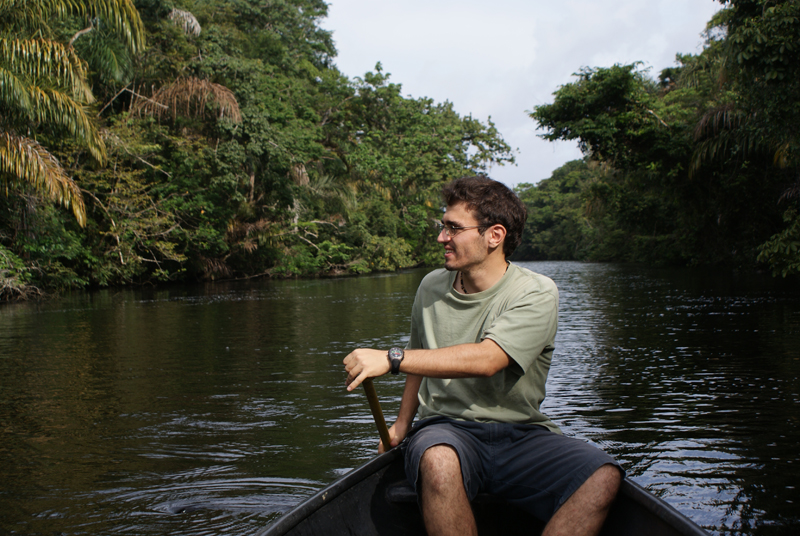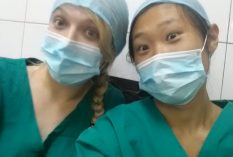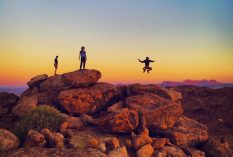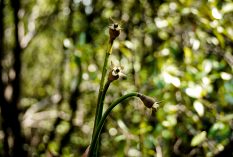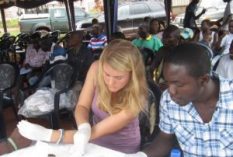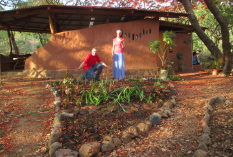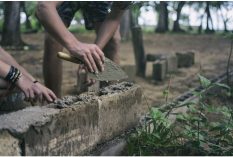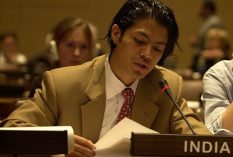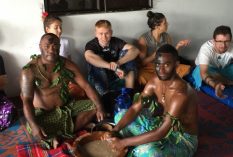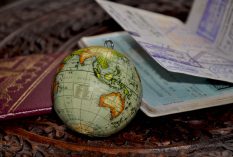Who are you, what do you do and what did you have for breakfast?
My name is Diogo Veríssimo, I was born in Lisbon, Portugal and I am a social scientist interested in the human side of conserving biodiversity. Human behaviour is the main driver of all key threats to biodiversity. If people are the problem, they can also be the solution. I am currently a David H. Smith Postdoctoral Research fellow and work around the world on issues such as sustainable small scale fisheries, bushmeat and wildlife trade, with the aim to drive the adoption of behaviours that are more sustainable.
As for breakfast, I had two slices of sourdough bread with a couple of different cheeses and a glass of milk (half cow half almond), I take breakfast very seriously.
What did you get up to last Tuesday at work?
 Last Tuesday was particularly heavy in terms of meetings and I spent about half my working day discussing a range of subjects with colleagues at Rare, where I am currently but also external collaborators. Rare, is an NGO that focuses on the use of marketing principles to conservation challenges. I am currently working with Rare on a project there that aims to understand what happens after social marketing campaigns are finished and how much effort is needed to keep people from regressing to the way they did things before. I also had a meeting with a documentary filmmaker working on a subject I have written a few articles about: trophy hunting and its potential benefits to species conservation. Despite all of this, I still managed to make some headway on a research article I am currently writing on which reflects on some of the challenges around knowing if a particular project has really worked and the importance of learning from past experiences.
Last Tuesday was particularly heavy in terms of meetings and I spent about half my working day discussing a range of subjects with colleagues at Rare, where I am currently but also external collaborators. Rare, is an NGO that focuses on the use of marketing principles to conservation challenges. I am currently working with Rare on a project there that aims to understand what happens after social marketing campaigns are finished and how much effort is needed to keep people from regressing to the way they did things before. I also had a meeting with a documentary filmmaker working on a subject I have written a few articles about: trophy hunting and its potential benefits to species conservation. Despite all of this, I still managed to make some headway on a research article I am currently writing on which reflects on some of the challenges around knowing if a particular project has really worked and the importance of learning from past experiences.
Who or what inspired you to do the job you do now?
My biggest inspiration comes from the unbelievable beauty that can be found on Earth’s biodiversity. Our planet is home to millions of unique species, each with their individual life history and evolution patterns. From the practically indestructible tardigrade to the largest animal species to have ever lived, the blue whale, biodiversity is an unparalleled heritage that we cannot afford to squander. That is why I wake up every day eager to start working and try to contribute, even if in a very small way, to the conservation of Earth’s biodiversity. My work is also my main hobby which makes life much simpler.
What is needed to succeed in your career?
My work is largely research-based but the technical or analytical skills are not the most important. My view is that to build a career in conservation science you have to be able to be resilient, be a good team player and be motivated. Being resilient will help you understand that failure is just a part of working on a complex issue and that the key is using each action to improve the next. Being a team player is critical as all issues around biodiversity conservation involve not only interdisciplinary teams but also require an ability to communicate with various stakeholders such as local communities or policy makers. Being motivated will make sure that, no matter how daunting some of the challenges around biodiversity conservation seem, you will always remember that every long journey starts with a single step.
If you could go back and change one thing, what would it be?
Perhaps one aspect I wish had been different is my current lack of connection with conservation researchers and practitioners in Portugal, my home country. In the last few years, I have more than once tried to connect links with other Portuguese conservation scientists but have come across some pretty significant barriers which have lead me to ultimately give up. This has however recently changed due to my involvement in a project on the consumption of sea turtle meat and eggs in São Tomé and Príncipe, an island country in West Africa, were I am collaborating with researchers from a Portuguese NGO and Lisbon University. This collaboration has already lead me to engage with other students in the University of Lisbon and I am looking forward to developing and implementing our ideas.
What is your proudest moment?
I have been very fortunate in my career to have been given many extraordinary opportunities but also to have had patient and insightful mentors who have greatly influenced me. Perhaps thanks to all of this I have no big regrets. In terms of my proudest moment, it is difficult but I would perhaps highlight a couple of recent events. One was being selected to be part of the David H. Smith Conservation Fellowship, which “seeks to develop future world leaders and entrepreneurs who are successful at linking conservation science and application”. It is a great honour to be part of this community of conservation practitioners and scholars. At the same time, I was also immensely happy with the recent launch of the book “BIOgraphies: The lives of those who study life” a project I led in collaboration with 18 Portuguese field biologists who wrote short stories about their most remarkable field adventures. All of this said, I am currently working on a few other projects that I believe will make me even prouder! Stay tuned!
What is your favourite quote?
I would say Mario Andretti’s statement that “If everything seems under control, you’re just not going fast enough”. I love what I do and am constantly looking for ways to push my boundaries and get my out of my comfort zone. That is the fastest way to learn new things and become better at what you do.
Written by Diogo Veríssimo 2015

